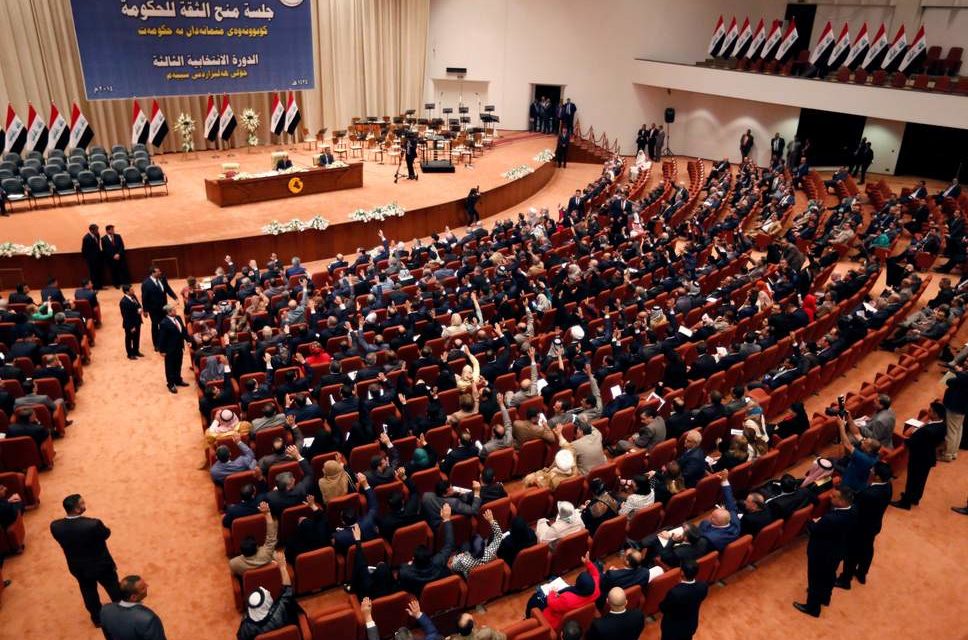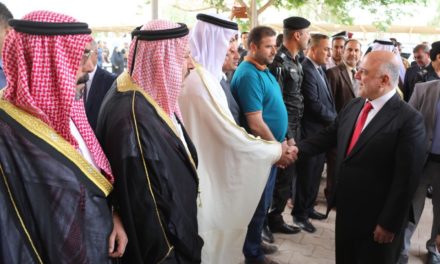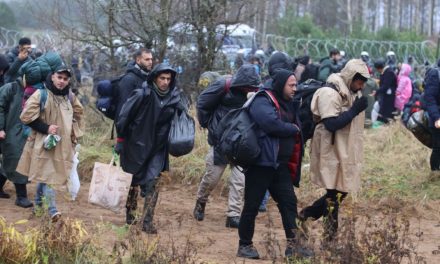(Council of Representatives. Reuters)
No two disagree that the negotiations to form the next government are happening amongst a huge political and media turmoil. Shia, Sunni and Kurdish factions agree to disagree at a time when the constitutional deadline that is due 15 days after the ratification of the election results is looming. The political factions are divided over whether Iraq’s incumbent Prime Minister Haider Al-Abadi should get a second term. The different stances take the following shapes:
The Sunni faction aims to achieve as many gains as possible. Therefore, they headed north to a meeting with the former President of Kurdistan Regional Government Masoud Barzani, with his rivals, the PUK, also present.
Khamis Al-Khanjar, the prominent Sunni politician aims to have the most significant role in the formation of the next government, and that all nominations of Iraq’s future Sunni government officials go through him. His wealth and influence made all his Sunni partners, most notably the former Speaker of Iraq’s Parliament Salim Al-Joburi as well as other Sunni politicians to be amenable to Khanjar’s wishes. The man, as his supporters report, met with the heads of all Shia and Kurdish parties. However, a disagreement with Al-Hikma movement became apparent, which will make a rapprochement between Hakim and Khanjar very unlikely. Hence, the Sunni forces will try to play the role of king-makers in joining the coalition that will respond to their demands and conditions. The biggest obstacle amongst them is nominating the Parliament Speaker given that no consensus within the ‘National Axis,’ the newly formed overarching Sunni alliance, has been reached, something that will make the breakup of this alliance likely if any of its faction decides to join the coalition that will form the largest bloc.
As it has become the norm by now after any elections, there is a disagreement amongst the Shia as to who will be the next Prime Minister, with the Da’wa party not nominating any candidate, and its Secretary General, Iraqi Vice President Nouri Al-Maliki, with no intention to run himself. However, he is personally inclined to choose someone whom he trusts, and as it happened in 2014, the name Tariq Najim, Maliki’s former Chief of Staff is on the table. There is also, Faleh Al-Fayyadh, who many bet on his defection and that of the members of his movement which consists of six people from Abadi’s Nasr, to join the State of Law and Fateh’s alliance, and the nomination of Fayyadh as the next Prime Minister. However, this is deemed unlikely given some regional considerations.
All this shows that there is no Shia agreement at the moment on the premiership nominee and that political factions are still negotiating and subject to external pressure.
As for the Kurdish factions, after meeting with U.S. Presidential Envoy Brett McGurk, Masoud Barzani stated that “the Kurds want a real partnership and assurances in order to participate in Baghdad’s government,” and partnership is a principle that those allied with State of Law and Fateh refuse. However, it might be something that head of Sairoon, Muqtada Al-Sadr, might accept, who himself offered 40 conditions to approve the nominee for the premiership, as well as the moderate factions that are allied with him, most notably Prime Minister Abadi’s Nasr.
The Kurds will go with anyone who will offer them the joint administration of the ‘disputed areas’ under the pretext that some of these return to full Kurdish control, in addition to sharing political posts in Kirkuk’s local government and administrative ones in its oil fields.
One could categorize all those who gathered recently in Babylon Hotel outside the Green Zone as moderate factions, given that they represent Iraq’s different communities.
As for Nasr, it still stands by its nominee Haidar Al-Abadi, with Hikma and Sairoon supporting it on that. The moderate forces want to establish a government platform in agreement with the participants in the political process, even if they are in reality rivals, in order not to impede the work of the parliament.
All the forces that created what is called the ‘core of the largest bloc’ are supporting Prime Minister Haider Al-Abadi for a second term, and that is one thing these forces are ahead of, given that there is no nominee for any post agreed upon amongst the others.
To conclude, everyone is waiting for the Eid holiday to end. There is, however, something developing in that far narrow alley in the holy city of Najaf, which might come up with something very different to what we see now and rescue Iraq from a political battle whose victims will be no one but the ordinary citizens; they are worried about the return of the faces they loathe, and who have harmed the country and caused the destruction of the provinces.
All hope hangs now on the next government after the current government was able to defeat Da’ish and smoothly overcome the Kirkuk crisis. And all are anxiously anticipating that dark and critical night before the constitutional deadline of 15 days ends, where the audience might be surprised with news about the largest bloc that turns all previous analysis invalid. Nothing is sure yet.

Wael Mazin
Wael Mazin is an Iraqi journalist. He is a researcher in Iraqi political and security affairs and has published several articles in Arab and foreign websites. Mazin has worked for several Iraqi news organizations, most recently NRT Arabic.










